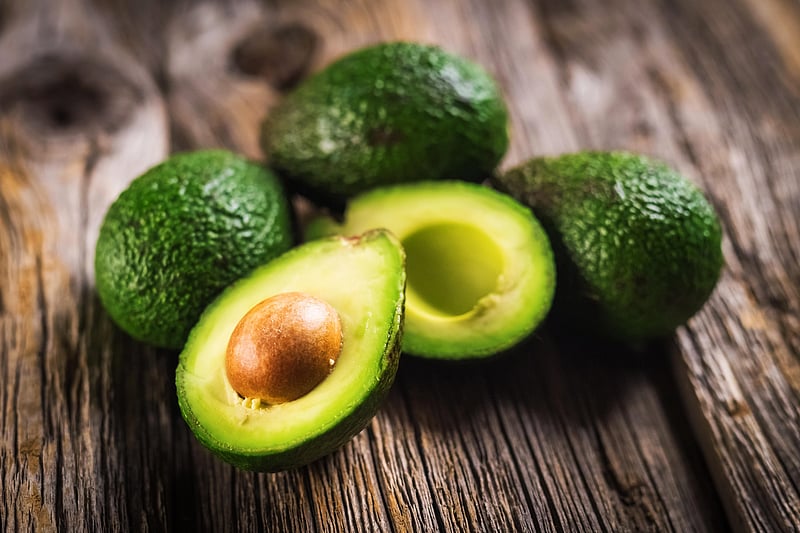Get Healthy!

- Posted January 9, 2023
Stick With These Foods to Help You Lose Weight
When it comes to losing weight, certain foods have a reputation for being all-stars, providing for a body's nutritional needs while helping keep a person fuller for longer.
"You're looking at plant foods,"said Connie Diekman, a nationally known food and nutrition consultant and former president of the Academy of Nutrition and Dietetics. "You're looking at whole grains, vegetables, fruit, beans, nuts, seeds."
Though certain diets or special eating plans may limit some of these foods, a healthy diet can include all of them, with an eye toward portion size.
Here are some foods to eat to lose weight:
Whole grains
Whole grains haven't been stripped of nutrients in processing, according to the Harvard T.H. Chan School of Public Health, in Boston.
Whole grains can also provide a nice balance between protein and carbohydrates, Diekman said.
From a weight-loss perspective, these foods contain fiber.
"Fiber fills us up and so therefore that blood sugar curve doesn't drop as rapidly, so you don't feel the need to eat as often,"Diekman explained.
Choices in this category can range quite a bit. There are lesser-known grains like quinoa, millet or bulgur, along with well-known whole wheat breads and pastas, brown rice and oatmeal.
Oatmeal got a shout-out recently from the American Heart Association.
"It has many, many good qualities," said Candida Rebello, director of the nutrition and chronic disease research program at Louisiana State University's Pennington Biomedical Research Center, in Baton Rouge.
While offering heart-healthy benefits, oats also are good for weight control because their fiber thickens in water and helps a person feel full longer.
"The key, when you look at the whole grains, becomes enjoyment,"Diekman said. A person might read that a particular grain is the best one, but "if you don't like that food, it's not going to work for you."
Healthy fats
Healthy fat provides energy and also helps the gut absorb certain vitamins, according to the National Institutes of Health (NIH).
Healthy unsaturated fats include a variety of oils that are liquid at room temperature, such as olive, soybean, canola, peanut and safflower. The NIH also lists fatty fish as rich in unsaturated fats, including salmon, sardines and herring, in addition to avocados, nuts and seeds.
"Low-fat diets have the same effect on body weight gain or weight loss as higher-fat diets, or higher-protein diets,"said Dr. Frank Sacks, a professor of cardiovascular disease prevention at Harvard. "For weight loss, it's about getting a handle on whatever foods in your diet are giving you excess calories."
Healthy seeds include flax, chia, nuts, pumpkin, sesame and sunflower, according to the Cleveland Clinic. Most nuts are healthy, but it's best if they're unsalted or unsweetened, according to the Mayo Clinic.
Eating nuts makes a person feel full, Diekman said. Snack on them slowly to ensure portion control.
Fruits and vegetables
The key to getting the most out of fruits and veggies is substituting them for higher-calorie foods, the U.S. Centers for Disease Control and Prevention noted.
These foods provide many essential nutrients while also being low in fat, calories and sodium, according to the U.S. Department of Agriculture's myplate.gov.
A person can fill up quickly on fruits and veggies because of their fiber and water content, but then get hungry soon after. Eat them with protein to stay fuller longer, Diekman suggests. Watch portion sizes on fruit because it does have a lot of natural sugar.
Aiming for seven to nine daily servings of fruits and veggies will displace other less healthy foods, suggests the Cleveland Clinic.
Legumes, lean proteins, plant-based proteins
A Danish meta-analysis of previous studies found that a vegan diet high in fruits, veggies, nuts, legumes and seeds could help a person lose weight and lower blood sugar. The researchers followed nearly 800 people for at least 12 weeks.
Legumes, such as a wide range of beans and peas, can prevent cell damage, fight disease and lower blood pressure and blood sugar, according to the National Library of Medicine.
Choosing foods that have a higher energy density, but fewer calories, can help with weight loss, according to the Mayo Clinic. In addition to many of the foods already mentioned, this includes plant and animal proteins, such as fish, lean meat and poultry, and low-fat and fat-free dairy products, such as yogurt, and egg whites.
Calcium-rich, plant-based foods can also meet some of these needs, including fortified tofu, almond milk and leafy greens.
"Healthy weight loss is achieving a weight that is a result of meeting your nutrient needs, getting regular physical activity, enjoying life and feeling good about yourself,"Diekman stressed. "A weight loss that eliminates, whether it's food, friends, social life, is not where you want to be."
SOURCE: Connie Diekman, food and nutrition consultant and former president, Academy of Nutrition and Dietetics
